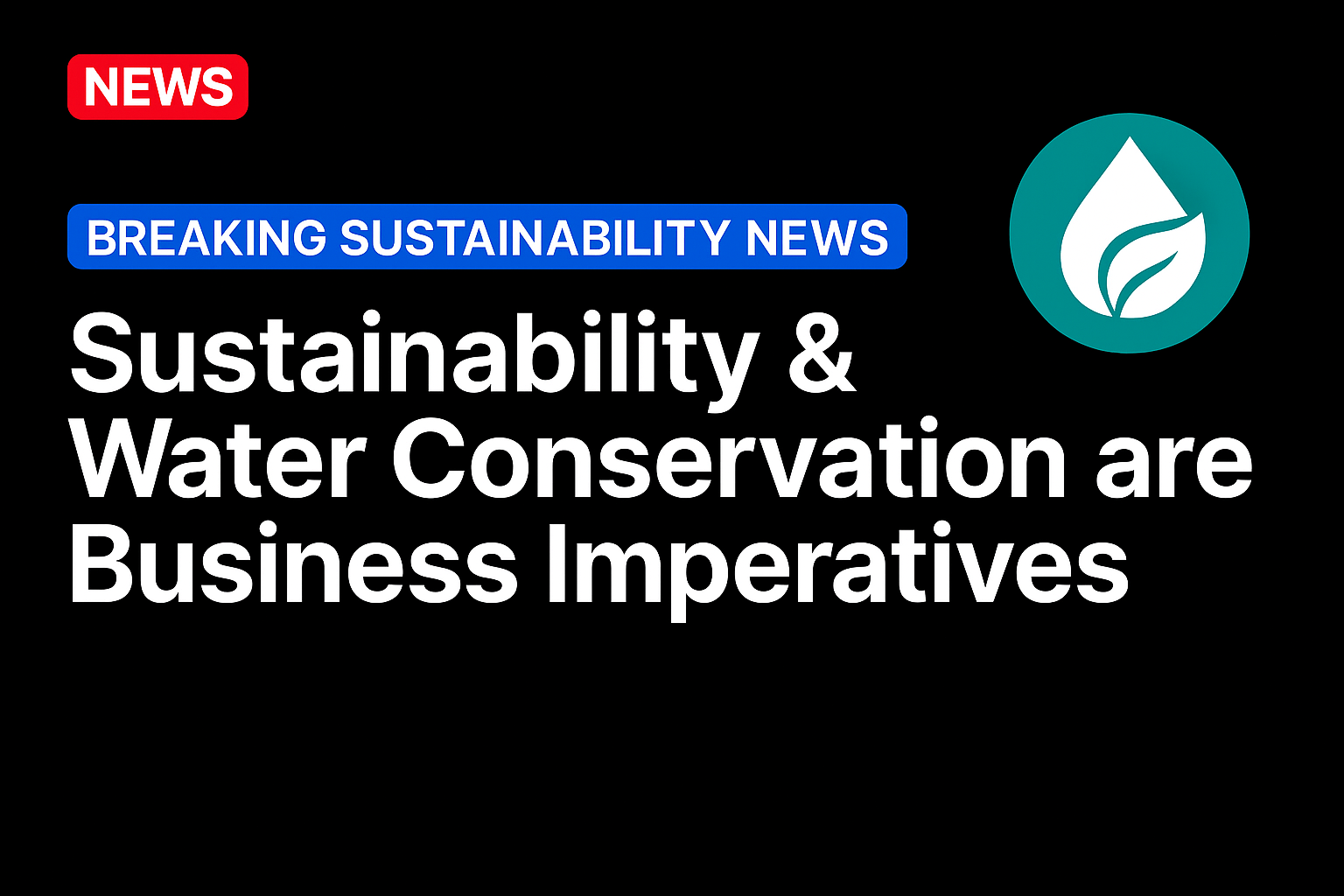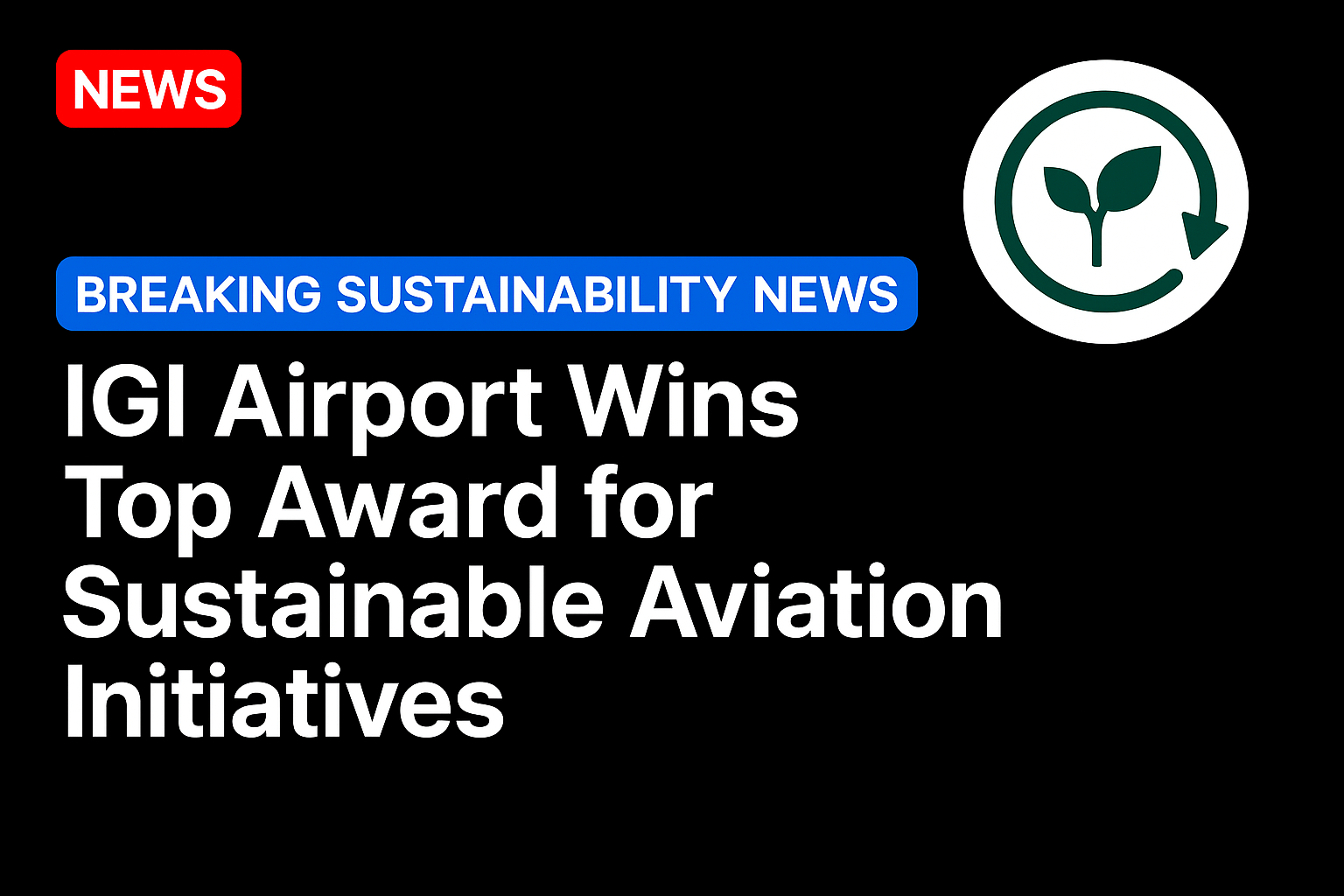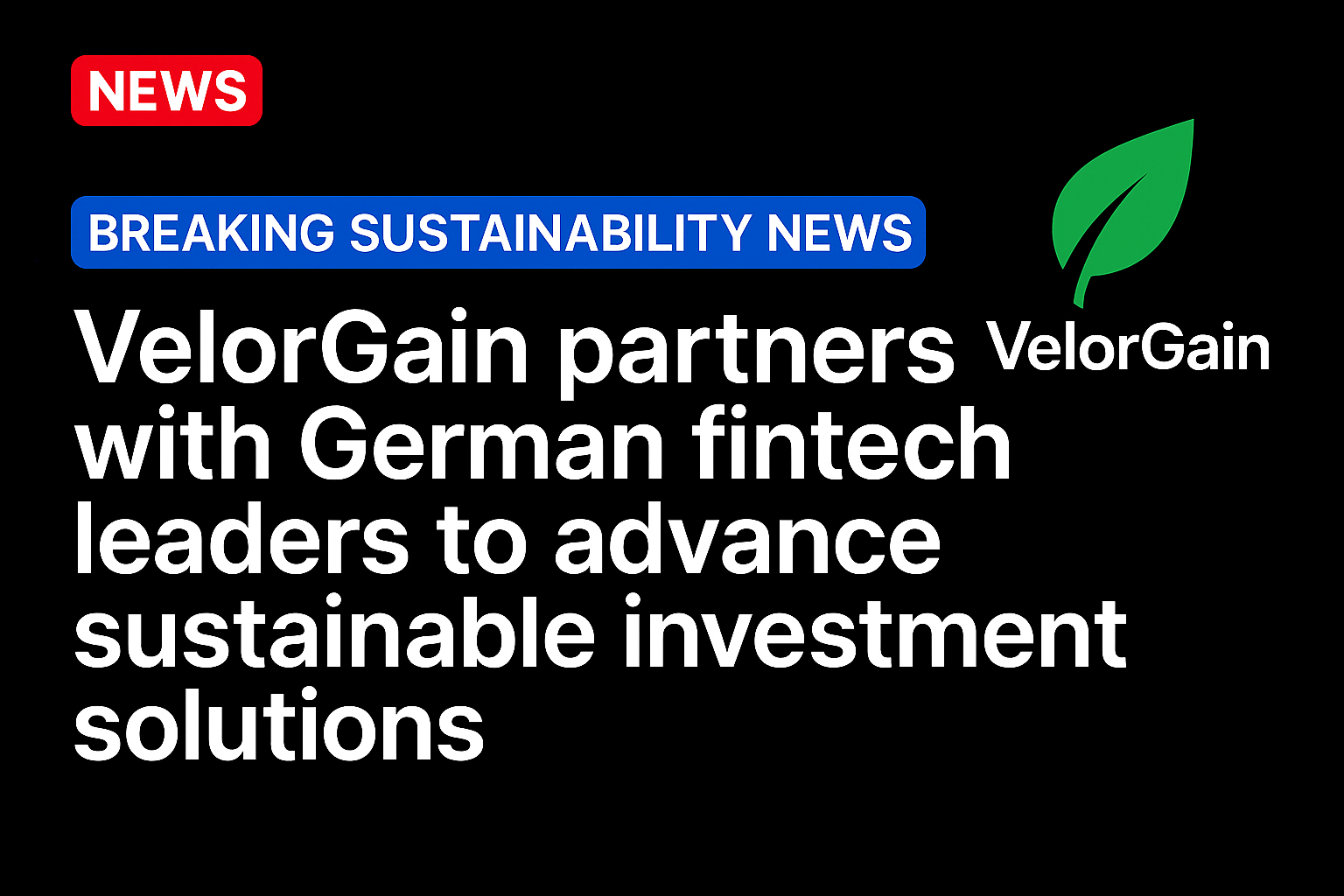Ecolab CSO Emilio Tenuta on the importance of aligning sustainability with corporate strategy – and why water scarcity must be a boardroom priority
The sustainability landscape has changed significantly in recent years.
From being seen as a voluntary corporate responsibility initiative – more window dressing than a priority – it has evolved into a critical business strategy.
This shift is reshaping how companies approach resource management, particularly water conservation.
Emilio Tenuta, Ecolab Senior Vice President and Chief Sustainability Officer, has seen this evolution first-hand during his 41 years with the business and 16 years in sustainability leadership.
In September, Emilio delivered a keynote at Sustainability LIVE Climate Week NYC, challenging executives to provide “Proof, not Promises” and urging them to advance business growth and impact.
Ahead of the event, Emilio spoke to Sustainability Magazine and highlighted Ecolab’s significant achievements, including helping customers achieve US$9.1bn in cumulative value since 2019 through sustainable solutions focused on water conservation and resource management.
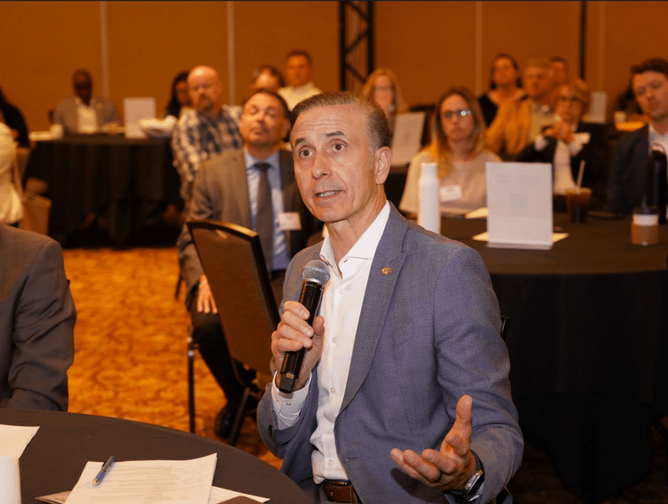
Four decades of critical experience
Ecolab is a global company offering water, hygiene and infection prevention solutions and services across more than 40 industries in 171 countries.
Emilio began his career at Nalco Water, Ecolab‘s water and process management business, as an application engineer in 1984.
His extensive experience spans technical marketing and business management across diverse sectors. These include food and beverage, pharmaceutical, lodging, healthcare, primary metals and automotive industries.
He moved into sustainability leadership 16 years ago and has since seen big changes.
“The biggest shift I’ve seen is that sustainability has moved from the side lines to the centre of the business strategy,” Emilio explains.
Growth & Impact Report
- Ecolab’s 2024 Growth & Impact Report demonstrates how the company’s sustainability expertise has produced outstanding results for partners across industries and continents
- In 2024, it helped its customers conserve 226 billion gallons of water
- Its hygiene and food safety programmes protected 1.7 billion people from foodborne illnesses and infections
- The company’s climate-driven solutions enabled customers to avoid 4.6 million tons of greenhouse gas emissions
- Since 2019, the report says Ecolab’s science-based and digital solutions have delivered US$9.1bn in cumulative value through efficiency, risk reduction and sustainable growth
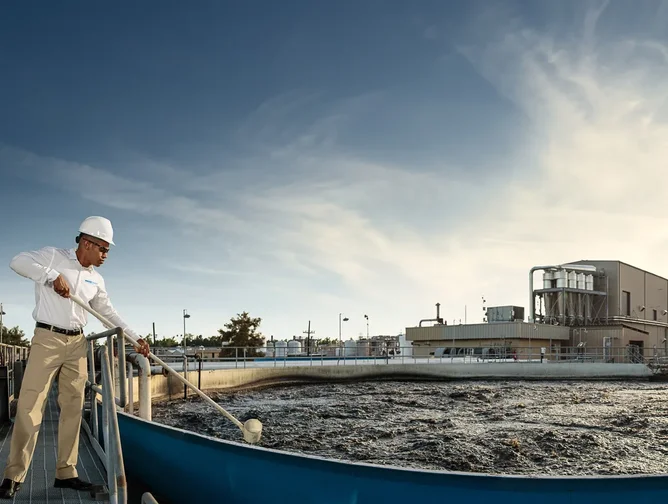
Sustainability: a boardroom priority
Previously considered a voluntary or reputational element, sustainability has become a boardroom priority – often driven more by pragmatism than concern for the planet.
Regulation, investor expectations and operational risk have all contributed to the change of mindset.
As a result, modern sustainability leaders face new expectations. Sustainability must be embedded in business strategy, according to Emilio. Sustainability leaders must deliver measurable business value through resource efficiency, risk mitigation and innovation. Where once they were seen as environmental stewards, they are now strategic business leaders.
Ecolab’s approach provides a perfect illustration of what sustainability as a strategic imperative can achieve.
The company has helped customers achieve US$9.1bn in cumulative savings since 2019, through its sustainable solutions focused on water conservation, resource management and operational efficiency.
“Value creation is the primary aim of every business, and value drives growth,” Emilio says.
He adds: “What I value and love most about my role is helping companies unlock growth by managing resources more intelligently, especially water.
“It’s incredibly rewarding to see how smart water resource management drives business growth and a broader impact in the world.”
The company’s solutions extend beyond water conservation.
Ecolab helps customers reduce greenhouse gas emissions and waste while delivering a significant return on investment.
Many of Ecolab’s solutions include digital components, which enable customers to measure value creation around water, energy, food safety and public health.
Smart technology drives water resource management
With artificial intelligence front and centre, Ecolab uses digital tools and insights to make water management systems more predictive and efficient.
“Smart water resource management drives business growth and a broader impact in the world,” Emilio says.
Ecolab’s 3D TRASAR Technology for direct-to-chip liquid cooling addresses critical data centre challenges.
It seeks to answer the fundamental question of how to power digital infrastructure sustainably, using real-time monitoring and insights to protect servers, optimise cooling and reduce environmental impact.
The company is also piloting an AI-enabled water conservation solution with Digital Realty, the leading global provider of cloud and carrier-neutral data centres, colocation and interconnection solutions.
The pilot aims to enhance water use efficiency whilst minimising environmental impact and improving operational resilience.
Emilio is clear about the gravity of the situation, saying: “For decades now, the water crisis continues to be more challenging for businesses and communities alike.
“We see the effects of climate change impacting areas around the world and it is imperative to continue to innovate and to use the technology already on the shelf.
“Now, it’s really a matter of enabling that technology with the growth of AI.”
A key tool, the Ecolab Smart Water Navigator, helps organisations assess water risks, set context-based water goals and implement solutions. An AI-enabled version of this online tool is planned for 2026.
“The biggest shift I’ve seen is that sustainability has moved from the side lines to the centre of the business strategy”
Emilio Tenuta, CSO, Ecolab
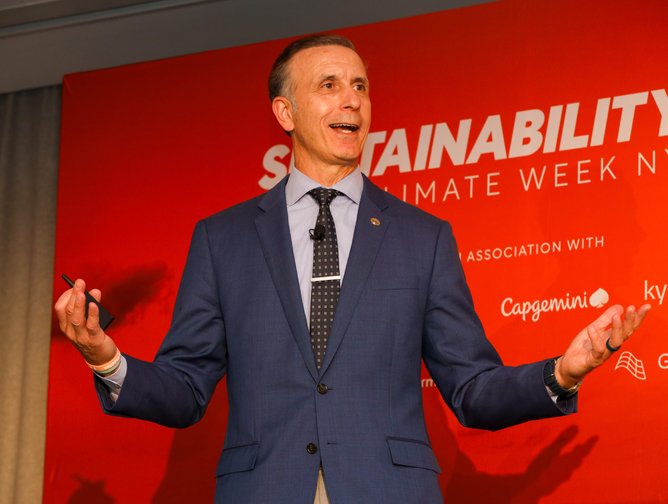
Water scarcity presents mounting business risks
Current projections indicate a 56% global freshwater deficit by 2030, representing an existential risk for businesses.
“Water is the number one physical risk that companies will face in the changing climate,” Emilio says.
“There’s more pressure than ever on businesses to reduce water use. And water is a critical resource and dependency; every part of our global economy requires water to produce the goods and services that we enjoy today.”
He says the expertise and solutions offered by Ecolab enable businesses to increase water resilience while also supporting responsible business growth.
Emilio says: “We help them do more with less. If you use less water, you’re less vulnerable to climate change. But at the same time, if you use less water, you also use less energy because water requires heating, cooling and pumping.”
Ecolab addresses the challenges and turns them into opportunities through smart water management and nature-based solutions.
Collective action amplifies sustainability impact
The scale and complexity of resource scarcity require collaborative approaches across sectors – neatly summed up by Emilio as “we can’t do it alone”.
In order to bring businesses together, Ecolab plays a convening role in several major water initiatives.
It co-founded the Water Resilience Coalition in 2020. The organisation focuses on water-stressed basins, working with the UN to identify more than 100 such regions.
In 2023, Ecolab co-founded the California Water Resilience Initiative to accelerate collective action across sectors to achieve a water-resilient future for California.
And last year, the company joined corporate leaders including Microsoft, Starbucks and Gap Inc. to provide safe water and sanitation access to 15 million people globally, pumping more than US$100m into WaterEquity’s Water & Climate Resilience Fund.

Circular water strategies transform operations
Emilio sums up the traditional approach to water management as “flush and forget”. But this has to change, he says, to “closing the loop on your operations where wastewater becomes a thing of the past”.
He adds: “We need to rethink the water cycle and view water as a strategic asset, not as a liability.”
This mindset shift enables businesses to manage resource constraints while advancing reliability and growth.
AI and smart technology are at the heart of the shift, transforming water management from reactive problem-solving to proactive resource optimisation.
Emilio says circular water strategies require “comprehensive operational changes”, including redesigning processes to capture, treat, and reuse water throughout their operations.
But the benefits are immense. Reduced water use decreases operational costs and regulatory compliance requirements.
At the same time, improved water security enhances business resilience against climate change impacts and resource scarcity.

Strategic alignment drives sustainability success
None of the above can happen, though, unless every company makes sustainability initiatives part of its core business strategy. And growing numbers are.
Emilio says: “Sustainability needs to be aligned with the business strategy and it is now more than ever reaching the boardroom.”
For this to be effective, sustainability programmes require measurable outcomes that demonstrate business value.
Emilio says: “Resource efficiency improvements, risk mitigation benefits and innovation opportunities provide concrete evidence of programme effectiveness.
“These metrics enable sustainability leaders to secure continued investment and organisational support.”
Ecolab’s approach demonstrates successful strategic alignment through its focus on customer value creation.
The company’s sustainability solutions directly address customer operational challenges whilst delivering environmental benefits.
Its digital solutions enable precise measurement of sustainability value creation.
Beginning his 5th decade at Ecolab, it is a recipe for professional satisfaction for Emilio.
He says: “I love getting up every morning knowing that we are driving business growth and community resilience while making a real impact on the planet at the same time.”
Source: https://sustainabilitymag.com/

